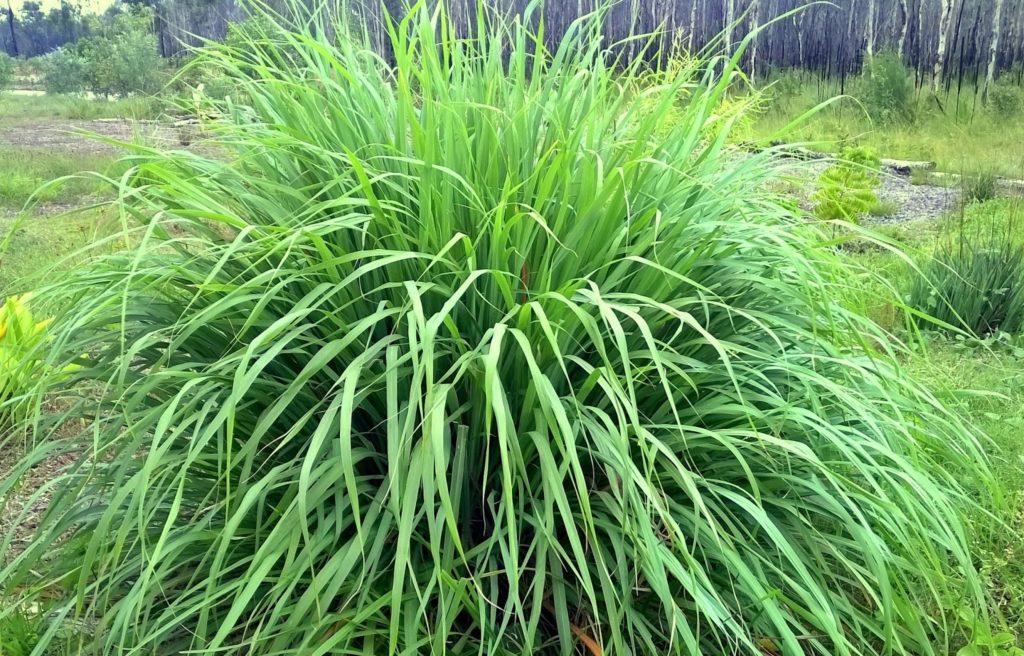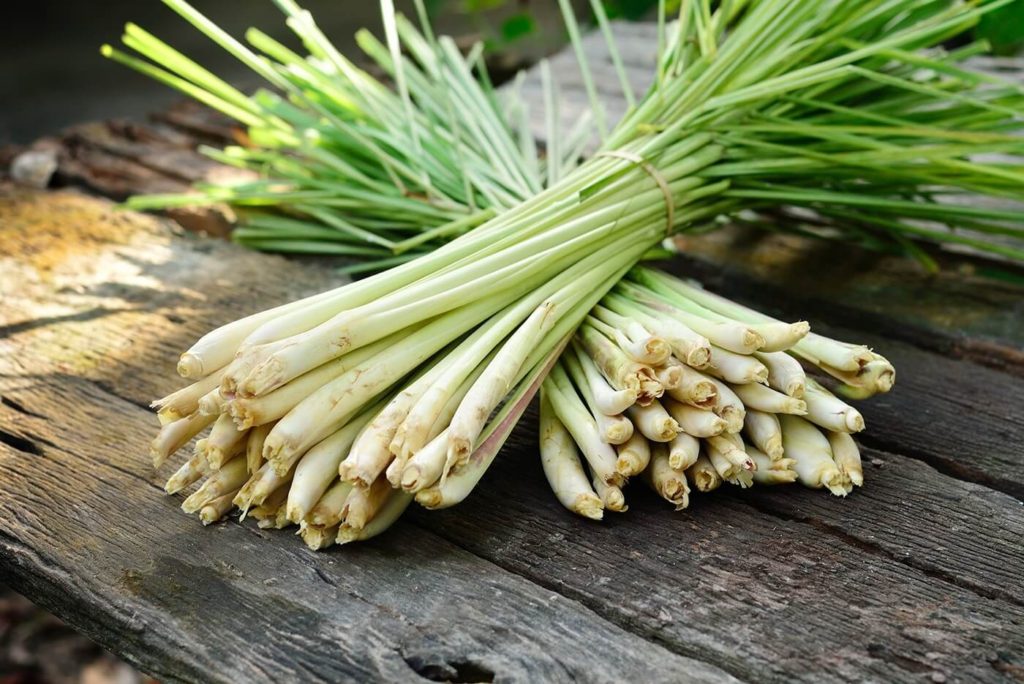LEMONGRASS

Lemongrass (lemon grass) is a perennial herb that has been widely used in Asian countries since ancient times. Other names of this plant are Cymbopogon, citronella. Lemongrass is also widely used in Thai or Chinese cuisine as an analogue of lemon. When used for culinary purposes, lemongrass goes well with ginger, garlic, coriander, and other spices.
Ayurveda uses this herb in the treatment of poor digestion, poor memory concentration, poor blood circulation, varicose veins, fever, intestinal infections, and some problematic skin conditions, and is also used as an excellent Ayurvedic remedy for relieving menstrual cramps (together with black pepper), nausea, irregular cycle, infectious diseases. Ayurveda also uses lemongrass in the fight against headaches, a weak immune system, and depression.
In Asian countries, lemongrass is used to reduce the high temperature in colds and inflammatory processes, as well as to normalize body temperature in hot weather. Lemongrass is brewed as part of various teas, used in foot baths to reduce the temperature and remove excess heat in the body. In traditional Chinese medicine, lemongrass is used to treat headaches, rheumatism, abdominal pain.
Lemongrass is also used to reduce high cholesterol, high blood pressure, and also helps in cleansing vital organs of the body by removing toxic substances such as the kidneys, pancreas, liver, and bladder. Lemongrass helps to treat nausea and dizziness. Herbal tea made with lemongrass is very effective and relieves symptoms within a few minutes after the onset of nausea or dizziness.

In Ayurveda, lemongrass essential oil is used to treat the following diseases:
- Flatulence. Lemongrass essential oil from 3 to 6 drops with sugar in the form of an emulsion helps to get rid of flatulence.
- Digestive disorders. Since lemongrass helps in strengthening the functioning of the stomach, it is used to treat indigestion.
- Joint pain. Lemongrass essential oil is used locally for rheumatic joint pain, dislocations. Lemongrass oil is mixed in a ratio of 1:2 with coconut oil and is used as a stimulating ointment for rheumatism, neuralgia, and other painful conditions.
- Infectious diseases of the skin. Lemongrass essential oil is effective for various fungal diseases and infections. Mix 2 drops of lemongrass essential oil with 15-20 drops of coconut oil and apply to cuts, wounds, acne, burns, ulcers, and other skin infections and wounds heal in the blink of an eye due to the antiseptic properties of lemongrass oil.
- Improves the immune system, strengthens the nervous system. Lemongrass essential oil has excellent nutrients and chemical components that benefit the entire system and strengthen the immune system, which makes the body naturally resistant to diseases. It serves as a tonic for the human body, strengthens the digestive system, nervous system, excretory system, and respiratory system, stimulating the absorption of essential nutrients. Body massage with 6 drops of lemongrass oil and 3 ml of olive oil helps in the treatment of nervous disorders such as dizziness, slowness, convulsions, Alzheimer’s disease, Parkinson’s disease, and nervousness.
- Removal of toxins. Add 2 drops of lemongrass essential oil to the bathwater or foot bath, or massage with sesame oil, adding 2-3 drops of lemongrass essential oil.
- Obesity. Excess Kapha dosha causes fluid retention, excessive deposition of fat, as well as toxic substances in the body. Stress, tension, and depression cause metabolic changes and contribute to obesity. Lemongrass essential oil reduces Kapha dosha, reduces appetite, and removes excess water and fat deposits in the body.
Lemongrass essential oil is an excellent antidepressant oil that helps to relieve stress, fatigue, depression, anxiety, and any negative feelings and emotional stress. It can be used in an evaporator, burner, or aroma lamp to help avoid negative emotions, insomnia, emotional instability. It also acts as an insect repellent and serves as a natural air freshener.


